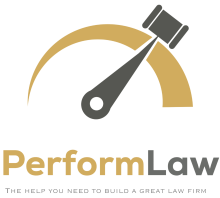The Heavy Bag Distortion
Blending personal or lifestyle-related expenses into a law firm income statement is akin to wearing a heavy backpack while measuring our body weight — it distorts the result. Similarly, mixing personal expenses when calculating a law firm's profitability prevents an accurate picture of the firm's financial health.
The Consequences of Commingling
The temptation for firm owners to mingle personal and business expenses is understandable. The convenience of using a single credit card or drawing on firm funds can be alluring. However, this commingling can lead to several detrimental outcomes:
-
Distorted Financial Reporting
Inaccurate financial statements hinder a manager’s ability to evaluate profitability, impeding strategic decision-making. When firms mix personal expenses with business costs, it becomes a great challenge to answer questions such as:
- "Where are these expenses coming from?”
- “How do we reduce the firm’s expenses to increase profit?” and
- “Are we paying too much for X?”
This commingling can lead to:
- misguided management and investment decisions,
- misallocation of resources, and
- missed opportunities for growth.
-
Tax Liabilities
Mixing personal costs with business expenses can trigger increased IRS scrutiny, leading to potential audits and financial penalties. The IRS has strict rules about what constitutes a legitimate business expense. Claiming personal expenses as business deductions can raise red flags and may cause hefty fines.
Even if a business owner manually separates personal expenses before claiming business deductions, why create extra work by mixing the expenses within the same accounts in the first place? Build in separation from the beginning to avoid additional legwork later.
-
Cash Flow Instability
Utilizing firm resources for personal expenditures can negatively impact the firm's operational capacity and liquidity. This can create a precarious situation where the firm struggles to meet payroll, pay vendors, or cover unexpected expenses.
-
Investor / Lender / Merger Skepticism
Financial institutions need a clear picture of revenues, expenses, and assets to make informed decisions. Disorganized finances may raise concerns about management acumen, professionalism, and integrity. Entangled finances make it harder for financial institutions to assess a business's risk profile, potentially inhibiting a firm's growth. The same principles apply to firms hoping to merge with or sell to another firm.
A Framework for Financial Clarity
To succeed, every legal practice must establish clear boundaries between personal and professional finances. We recommend the following steps toward this clarity:
- Distinct Accounts: Maintain separate accounts for business and personal transactions to simplify tracking expenses and reconciling accounts.
- Expense Categories: In Quickbooks or other bookkeeping software, classify each expense as either personal or business-related. This is essential for accurate financial reporting.
- Reimbursement Rules: Implement a structured reimbursement policy with clear procedures and documentation requirements to govern the personal use of firm funds. Outline what types of expenses can be reimbursed, how to submit requests and the timeline for reimbursement.
- Review Often: Regularly read profit and loss statements, balance sheets, and cash flow reports to identify discrepancies, catch any errors early on, make necessary adjustments, and safeguard financial health.
- Professional Consultation: Refer to accountants with experience in legal practices. Financial advisors can be a valuable resource for tax compliance, financial planning, and other areas of financial management.
Reaping the Rewards of Diligence
By following these steps, law firm managers stand to gain substantial benefits, including:
- Reliable financial data
- Tax compliance
- Robust cash flow
- Increased confidence from investors, lenders, buyers, and future equity partners
Conclusion
The "Heavy Bag Distortion" highlights the importance of financial clarity in assessing law firm health. Maintaining organized finances promotes stability, attracts lenders, and ultimately drives growth in the legal field.




 />i
/>i
